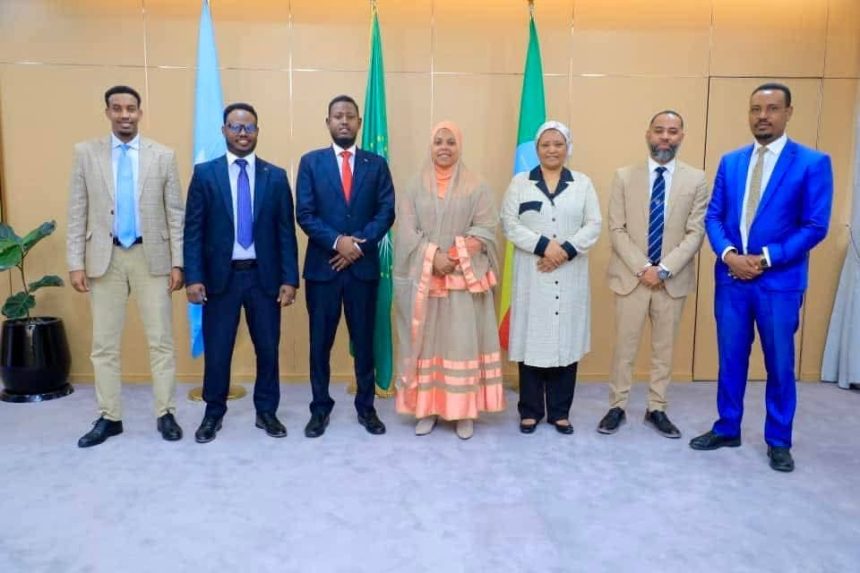Somalia, Ethiopia unite to boost youth jobs and skills

The partnership aims to enhance youth employment, skills development, and labour market integration across the Horn of Africa.
Somalia and Ethiopia have taken a bold step toward regional collaboration, with their labour ministers signing a landmark agreement.
The partnership aims to enhance youth employment, skills development, and labour market integration across the Horn of Africa.
The meeting, held in Addis Ababa, saw Somalia’s Minister of Labour and Social Affairs, Yusuf Mohamed Aden, and Ethiopia’s Minister of Labour and Skills, Muferihat Kamil Ahmed, committed to a shared vision of economic empowerment and regional stability.
With youth unemployment rates in Somalia and Ethiopia hovering around 20% and 15% respectively, according to recent World Bank estimates, both nations face mounting pressure to create jobs for their growing populations.
The ministers identified key sectors agriculture, construction, manufacturing, and renewable energy as ripe for investment and job creation.
Minister Aden emphasized the need for practical solutions for the young people who he said is the greatest asset.
“By aligning our policies and training programs, we can create opportunities that not only meet local demands but also allow our youth to compete in regional and global markets.”
The agreement outlines a joint framework to boost employment and skills in the Horn of Africa.
It includes the establishment of vocational training centers to equip youth with skills in digital literacy, green energy, and modern agriculture.
To support labour mobility, the two countries will create cross-border job pathways under harmonized labour standards.
They also plan to exchange technical expertise** in labour policies, workplace safety, and job creation strategies.
It also encourages public-private partnerships to fund and expand training programs and employment initiatives.
Minister Ahmed highlighted Ethiopia’s recent successes in industrial job creation, noting that Ethiopia’s Hawassa Industrial Park has generated over 25,000 jobs since 2017.
“By working with Somalia, we can replicate and expand such models, ensuring decent work and sustainable growth,” she said.
The partnership comes amid broader efforts to stabilize the Horn of Africa, where conflict, climate change, and economic challenges have displaced millions and strained labour markets.
Somalia, recovering from decades of instability, has seen progress in rebuilding its economy, with GDP growth projected at 3.7% for 2025 by the International Monetary Fund.
Ethiopia, a regional economic powerhouse, aims to sustain its 7% annual growth rate through investments in infrastructure and human capital.
“This collaboration is not just about jobs; it’s about building a future where our youth can thrive and contribute to peace and prosperity,” said Aden.
The ministers also discussed aligning their efforts with the African Union’s Agenda 2063, which prioritizes youth empowerment and regional integration.
The ministers agreed to form a joint task force to finalize the framework by Q1 2026, with pilot projects in cross-border training and job placement expected to launch in Mogadishu and Dire Dawa.
However, challenges remain, including funding constraints, bureaucratic hurdles, and ensuring equitable access for marginalized groups, such as women and rural communities.
The Somalia-Ethiopia partnership could set a precedent for other nations in the region, where youth unemployment and underemployment remain critical issues.
Both countries aim to harness their demographic dividend over 60% of their populations are under 30 to drive economic transformation by fostering skills and mobility.
